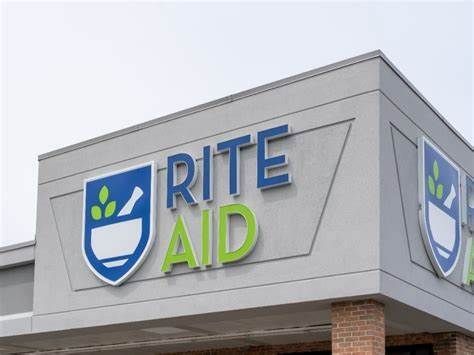If you've ever tried to lease out one of your vacant rental units, you have likely encountered the topic of emotional support animals. This can be a very touchy subject.
We have seen a number of clients that have had negative past experiences with pets on their property and, as a result, have become very resistant to the idea of allowing their tenants to have any kind of animals.
But the emotional support animal (also known as an ESA) is a very important topic to cover because, as we will see in this post, they are actually distinct from pets in the eyes of the law and confusing the two can easily get you into legal trouble.
As a professional property management company, here at Coastline Equity, we have a responsibility to our clients to keep their real estate investments safe, and that means protecting them from fair housing violations. In this article we will go over what an ESA animal really is and the laws pertaining to them.
KEY DEFINITIONS: ASSISTANCE ANIMAL, SERVICE ANIMAL, EMOTIONAL SUPPORT ANIMAL, AND PETS
First, we need to start with some definitions1, so let's define some key terms: Assistance Animal, Service Animal, Emotional Support Animal, and Pet.
Assistance Animal
Assistance Animal is a broad term that basically describes an animal that provides some kind of assistance to someone with a disability. Think of this as the umbrella term that encompasses the next two definitions:
Service Animal
Service Animal refers to an animal that has been trained (professionally or otherwise) to perform specific tasks to assist an individual with a disability. For example, guide dogs are service animals that have been professionally trained to assist people who have impaired vision with navigation.
Emotional Support Animal
Emotional Support Animal (ESA) can be either a trained or untrained animal that, “provides emotional, cognitive, or other similar support to a person with a disability, to assist them in managing the symptoms of their disability.”
Pets
ets are simply privately-owned animal companions, but it is very important to note that Assistance Animals (both Service and Emotional Support Animals) are
not
considered pets.
As a landlord, the implications of this, of course, mean that your property’s pet policy does not apply to either kind of Assistance Animal. While most landlords have little hesitation for accommodating a Service Animal (for example, a dog assisting a deaf person), there can often be much more skepticism over the use of Emotional Support Animals.
This is because some landlords feel that tenants falsely claim their animal to be an ESA, in order to simply avoid pet policies such as pet fees and deposits. As a result, these landlords deny renting to prospective tenants that have emotional support animals, or they make the leasing process very difficult for them as a way of discouraging them.
Next, let’s understand why this is not the best approach and why it could put you at risk.
FAIR HOUSING – WHY YOU MUST ACCEPT EMOTIONAL SUPPORT ANIMALS
Broadly speaking, the U.S. Fair Housing Act makes it illegal to discriminate against protected classes, one of which is people with disabilities. The term “disabilities” is generally defined as, “an individual with a physical or mental impairment that substantially limits one or more major life activities.”2
As you can see, this definition can cover a very wide range of conditions, including emotional conditions that can sometimes be alleviated with the help of an emotional support animal. This is the reason that denying the use of an emotional support animal, even if your building has a no-pet policy (remember, an ESA is not considered a “pet”), can get you into legal trouble. All an applicant or a current tenant has to do is file a complaint with HUD if they feel that they are being denied access to an ESA.
Furthermore, if a tenant or applicant has a disability-related need for an ESA, landlords must be willing to make “reasonable accommodations” for that animal. A reasonable accommodation is “a necessary change to a landlord's rules or policies that enables a person with a disability to have an equal opportunity to use and enjoy housing.”3
VERIFYING IF AN ANIMAL IS CONSIDERED AN ESA
But how do you tell apart someone that genuinely needs an ESA, versus someone that is just using that term as a way of simply avoiding your pet policy? Based on current regulations, let us discuss the ways in which you can verify that an animal is considered an ESA.
A landlord may ask for documentation to support the person's request for an ESA. Keep in mind though, that this documentation can come from a medical professional or "any other reliable third-party who is in a position to know about the individual's disability or disability-related need for the accommodation. This could include a relative caring for a child with a disability, a relative caring for an elderly family member with dementia, or others in a caregiving relationship with a person with a disability. The determination of whether a third-party is reliable must be determined on a case-by-case basis.”4
In a nutshell, a letter describing the person’s need for an emotional support animal does not necessarily need to come from a medical professional, and the range with which someone can substantiate their need for an ESA is fairly wide.
Also note that an ESA does not need to be registered, certified, or trained in order to qualify for reasonable accommodation, and the person’s disability does not need to be obvious or readily apparent to the landlord.
DENYING A REQUEST FOR AN ESA
At this point you may be thinking to yourself, “If it seems so easy to claim an emotional support animal, then under what conditions can a landlord actually deny a request for an ESA?” According to Fair Housing, here are the conditions:
- When permitting the ESA would cause an undue financial and administrative burden for the landlord (i.e., something that causes a significant expense). A “significant expense” may seem a bit subjective, which is why this would need to be examined on a case-by-case basis by HUD.
- When it would constitute a fundamental alteration of the landlord's business.
- When the animal constitutes a direct threat to the health or safety of others (i.e., a significant risk of bodily harm) or substantial physical damage to the property of others. In this case, the landlord would need to prove that these issues cannot be sufficiently reduced or eliminated by making a “reasonable accommodation.”
Here is an example:
A policy banning tenants from having a dog as an ESA would be unlawful, however, if that dog regularly growled at or tried to bite other tenants on the property and the risk of the dog biting someone could not be sufficiently reduced by another reasonable accommodation, the landlord may be justified in denying that particular dog.
OTHER IMPORTANT NOTES ABOUT EMOTIONAL SUPPORT ANIMALS
Finally, here are some other key things that you should consider:
- A landlord cannot charge a pet deposit, pet rent, or any other fee or rent because of the ESA.
- A landlord cannot ask what kind of disability an individual has, nor can they ask for specific reasons as to why a particular animal is needed. In the eyes of the law, this essentially amounts to asking someone about their personal medical information and the treatments that they use. This information is confidential.
- Requests for an ESA animal can be made at any time, which means it is possible for an existing tenant to obtain an emotional support animal.
- A tenant can have more than one ESA. While there are not any particular limits on the number of animals someone can have, a landlord can always keep in mind the question of whether this becomes an “undue burden.”
- A landlord cannot restrict the breed, size, or weight of emotional support animals, even if those restrictions are normally placed on pets at the building or placed by insurance companies.
- A landlord cannot require the ESA owner to obtain liability insurance, covering that animal, but the ESA owner may be required to cover the cost of repairs for damage that the animal causes to the premises.
- If other tenants have allergies to the emotional support animal, that does not necessarily mean that the animal cannot be accommodated.
- A landlord can impose rules on an emotional support animal in order to ensure that it is under the direct control of the person with the disability or a person that is assisting the disabled person (e.g., restrictions on waste disposal and nuisance behavior), so long as the conditions do not interfere with the normal performance of the animal's duties. For example, preventing incessant barking or keeping the animal out of common areas when it is not under the direct control of its owner.
As a landlord, it is wise to be aware of this and all Fair Housing regulations. As awareness around mental health continues to grow, it might be reasonable to assume that it will be more common to encounter requests for emotional support animals, and that the laws will generally continue to side heavily with tenants.
Property Management Made Easy
Contact Us - Contact Page
We will get back to you as soon as possible
Please try again later
Los Angeles
1411 W. 190th St.,
Suite 225
Los Angeles, CA 90248
Temecula
41743 Enterprise Circle N.,
Suite 207
Temecula, CA 92590

P.O. BOX #1489
TORRANCE, CA 90505








